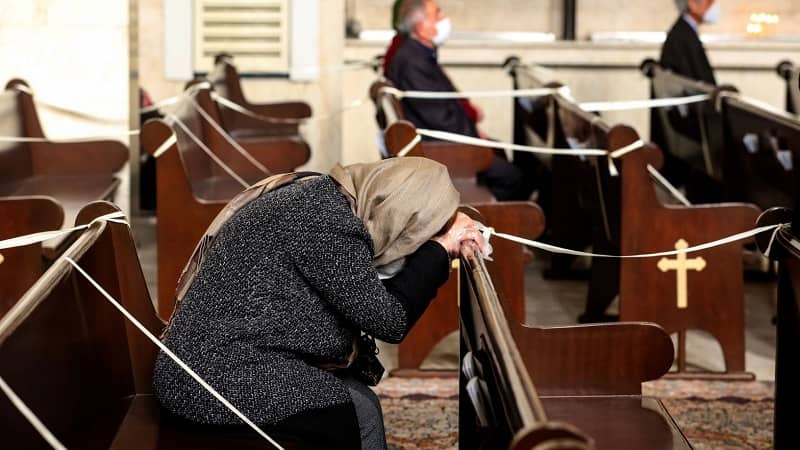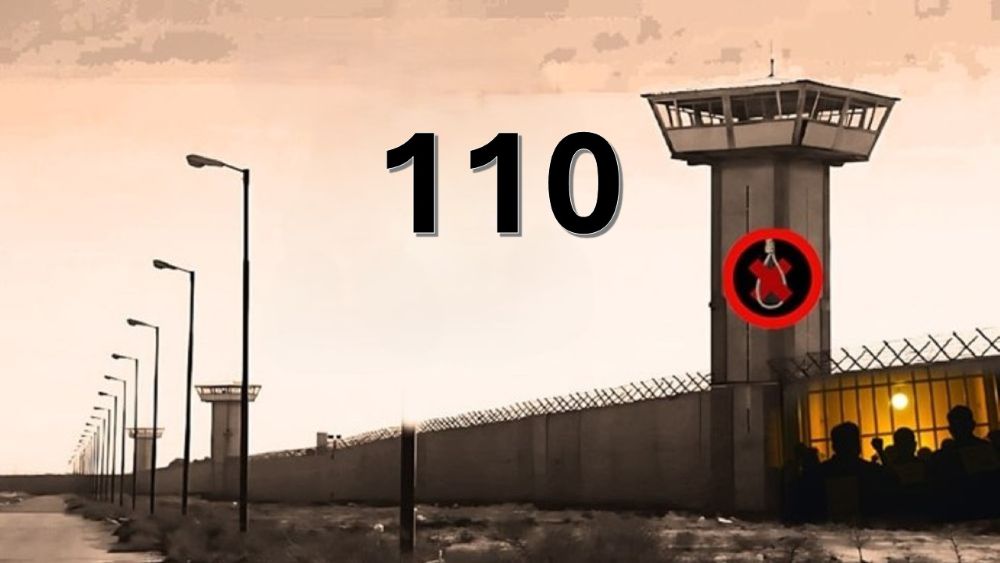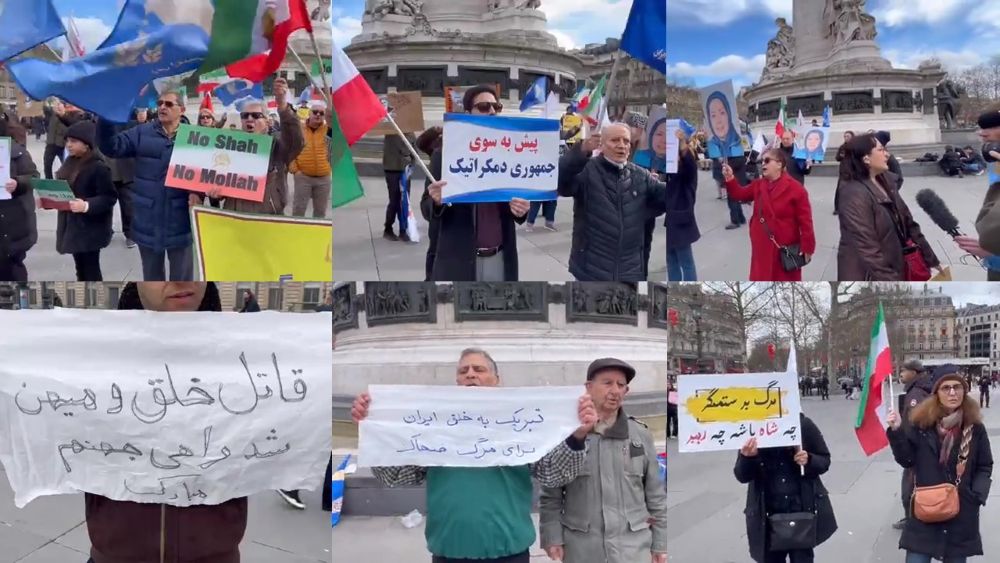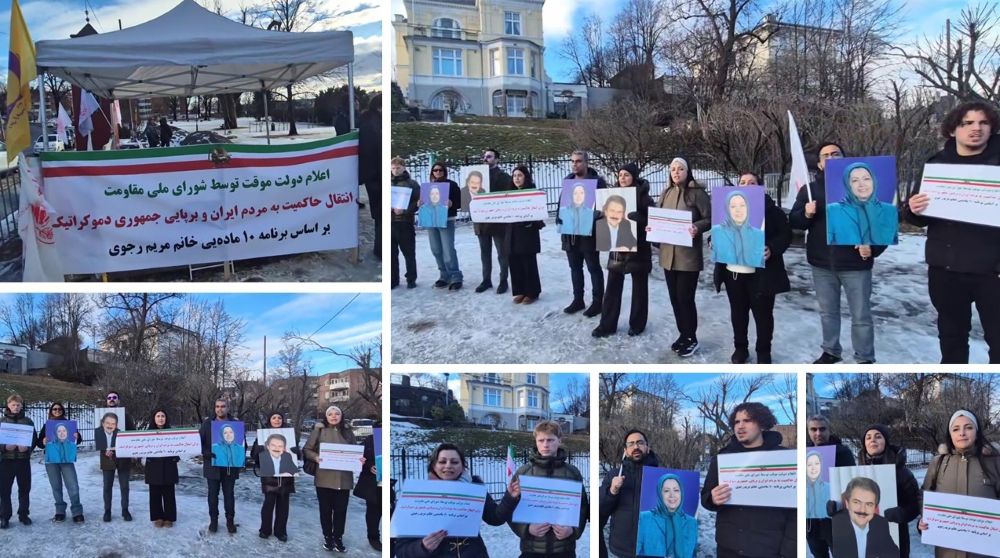
In the latest annual ranking of countries based on the danger they pose to Christians, either living or visiting there, Iran has placed eighth on the list produced by Open Doors, a non-governmental organization which defends Christian communities across the world.
Following the release of the latest ranking, Open Doors, together with the Article 18, Middle East Concern and Christian Solidarity Worldwide organizations, have partnered up, with the focus on the rights and freedoms of Christian communities, to publish a review of the situations faced last year by Iranian Christians.
The National Council of Resistance of Iran (NCRI) said, “The report confirmed that perennial issues of persecution and interference with Christian worship persisted during that year and arguably worsened, especially following the June installment of well-recognized human rights violator Ebrahim Raisi as the nation’s president.”
The report, titled ‘Rights Violations Against Christians in Iran’, greatly acknowledged Raisi’s involvement in the mass executions of political prisoners throughout the 1980s, noting that ‘under his leadership’, ‘rights’ violations continue to be widely reported’ to this day.
The abuses faced by Iranian Christians often take the form of raids, by the Iranian regime’s security forces, on their home-based churches. Many properties, including mainstream churches, have also been seized, and the people found residing or practicing their religion at these properties have been subjected to arrests and prosecution.
Under the regime’s theocratic rulings, the conversion to any other religion than Islam is deemed illegal, however historically, some expatriate groups, and small Christian communities have been allowed to continue practicing their faith. In reality though, regime authorities have continued to interfere regardless, preventing any opportunities for traditional worship.
The NCRI said, “The report points out that the Iranian judiciary denies arresting anyone based solely on their faith, but it adds that authorities find a pretence for carrying out those arrests by labelling home churches as gatherings of ‘enemy groups’ or a ‘Zionist Christian cult’, intended to undermine national security. Furthermore, the law formally criminalizes such gatherings as proselytization to Muslims if they are conducted in the Persian language or if they grant admission to converts from Islam.”
Under an amendment of the regime’s Penal Code in February 2021, the penalties for ‘engaging in propaganda that educates in a deviant way contrary to the holy religion of Islam’ have been increased, and this supposed ‘crime’ now carries a five-year prison term.
In a recent report on this matter, more than a dozen people have been prosecuted under this law because of their Christian faith and are currently serving prison terms. However, this figure highlights only the number of convictions that were able to be independently verified, so the numbers could be much higher as it is widely assumed, given the secrecy within the regime’s judicial system, that many convictions have gone unreported.
The NCRI said, “The report confirmed 59 instances of arrests targeting Christians, of which 38 could be linked to documented judicial cases. Of those, 12 reportedly involved enforcement activities by the Revolutionary Guard Corps (IRGC).”
When President Raisi was inaugurated last August, the appointees to his cabinet soon became heavily dominated by IRGC commanders, many of whom are under sanctions by Western powers, or have international arrest warrants against them.
Prior to this, Amnesty International, among other human rights organizations, had already warned that the regime was consumed by a sense of ‘impunity’ that protected them in the matters of human rights and international law, and this revelation was clearly evident as soon as Raisi gained power.
In the conclusion of the report compiled by Open Doors, Article 18, MEC and CSW, they called upon “members of the international community to assist in holding Iran accountable for upholding its obligation to ensure and facilitate freedom of religion or belief for all its citizens by highlighting this principle during political and/or economic discussions with, or concerning, Iran.”
In 1994, there was a case of three Iranian bishops being brutally assassinated for opposing the regime’s absolute clerical rule. In a bid to cover up their crime, the regime pinned the blame on their opposition group, the People’s Mojahedin Organization of Iran (PMOI/MEK), and held a mock trial on national television where three women falsely confessed to the murders, claiming that the MEK had ordered them to carry them out.
The NCRI said, “The persecution of Christians in 2021 was only one part of a much broader repressive trend. Other elements include an accelerated rate of executions and expanded abuse of political prisoners, much of which specifically targets MEK affiliates, viewed by the regime as threats to the existing clerical dictatorship.”



